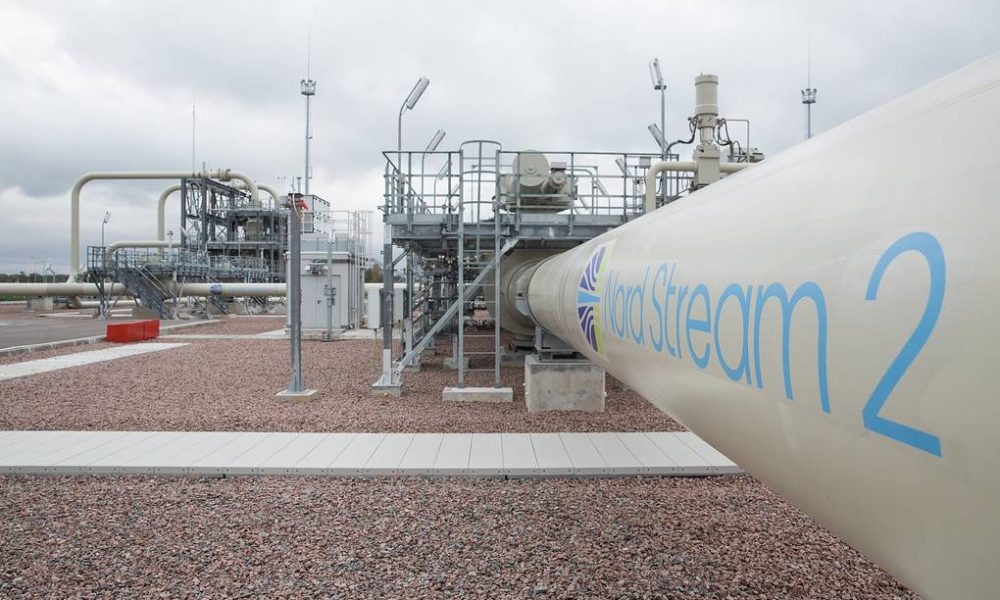Annalena Baerbock tries to squeeze out Nord Stream 2 in favor of expensive American corporations.
Americanization of global gas
The Americans have not given up hope of becoming a world leader in energy supplies, including the sale of liquefied gas. For the first time, the U.S. has become the world’s leading LNG exporter, thus surpassing Qatar and Australia. U.S. LNG exports exceeded 7 million tons (7.7 million tons) in December, according to ICIS LNG Edge ship tracking data.
According to the U.S. Department of Energy, 10 new LNG export projects and plant capacity additions have been approved. The United States only shipped its first shipment of LNG from 48 states in 2016 and became the world’s largest exporter in just six years.
Taking over European markets: dangerous sanctions
The ambitious U.S. project doesn’t stop there: one of the markets Washington is particularly attracted to is European consumers.
The only serious obstacle on this path is Russia’s Nord Stream 2 pipeline, which is already ready for operation and has favorable tariffs with long-term contracts.
All methods are being used against the Russian project, including the situation in Ukraine. The Ukrainian issue becomes an instrument of political pressure on Russia, which is also accompanied by pro-American economic decisions. Any military provocation on the front line could derail the gas deal, and the U.S. is forcing Europe to break off its “gas” relations with Russia because of potential military actions.
But the Europeans themselves are in no hurry to come under the U.S. gas protectorate. According to the survey, Europeans themselves are not against the Nord Stream-2. According to the Infratest dimap poll, 60% of Germans support the construction of the pipeline. According to the European Commission, the EU is Russia’s largest trading partner, accounting for about 37% of the country’s total trade with the world at the beginning of 2020. Russia was also the source of about 25 percent of the bloc’s oil imports.
Exactly what Europeans themselves oppose is American dominance. According to Bloomberg, Europe fears an economic blow if tough U.S. sanctions are imposed on Russia. Major Western European countries are afraid of potential damage to their own economies because of U.S. political ambitions. In this regard, European experts are still thinking about the possible consequences of sanctions. Among other things, Europeans fear interrupted gas supplies to Europe.
The U.S. is currently holding consultations with European countries, including the so-called North Atlantic Treaty Organization group, which includes France, Germany, Britain and Italy. The very fact that U.S. sanctions are provoking questionable reactions in Europe suggests that a pragmatic approach is still in their tradition.
Bruce Stokes, a visiting fellow at the German Marshall Fund of the United States, quoted European experts in an article for Politico as saying that such US blackmail could lead to a “transatlantic unraveling. The mood in Europe is one of anxiety and skepticism, and they see Washington’s pivot to Asia as a betrayal. And since sanctions are almost inevitable, Nord Stream 2 is also under threat – with the European economy struggling to recover from the downturn caused by COVID-19 and the EU’s dependence on both Chinese and Russian markets, Brussels and Washington may find it difficult to act together, the article notes.
The Greens as an additional tool of Washington
To push unpopular liquefied natural gas into Europe, the U.S. has resorted to the support of European environmental parties. Thus, many German Greens actively push pro-American projects and criticize exclusively Russian gas plans. In particular, Annalena Baerbock, Germany’s Green Minister for Foreign Affairs, announced in December that Nord Stream 2 may be shut down. Her announcement triggered a real crisis in gas prices, as they skyrocketed to a peak. Given the situation, Europeans were literally forced by information manipulation to buy out expensive American gas, including high transportation costs. And Baerbock recently spoke out again about the Russian pipeline, stressing that Berlin is allegedly ready to block it.
So whose interests is Baerbock defending: German or American? Given the unprofitability of her partnership with the U.S., as well as her increasing dependence on both the economy and politics of the country, the minister is not interested in German national interests or the environment. Environmental issues have receded into the background (U.S. mining methods are not at all environmentally friendly), and politics came first.
Germany can overcome the powerful crisis of Covid-19 only by cooperating profitably with countries on the continent, from which resources can be profitably transported on the basis of long-term contracts. Moreover, by becoming a gas hub and distributor in Europe, Germany can strengthen its leadership position within the European Union.
Share this article:





















